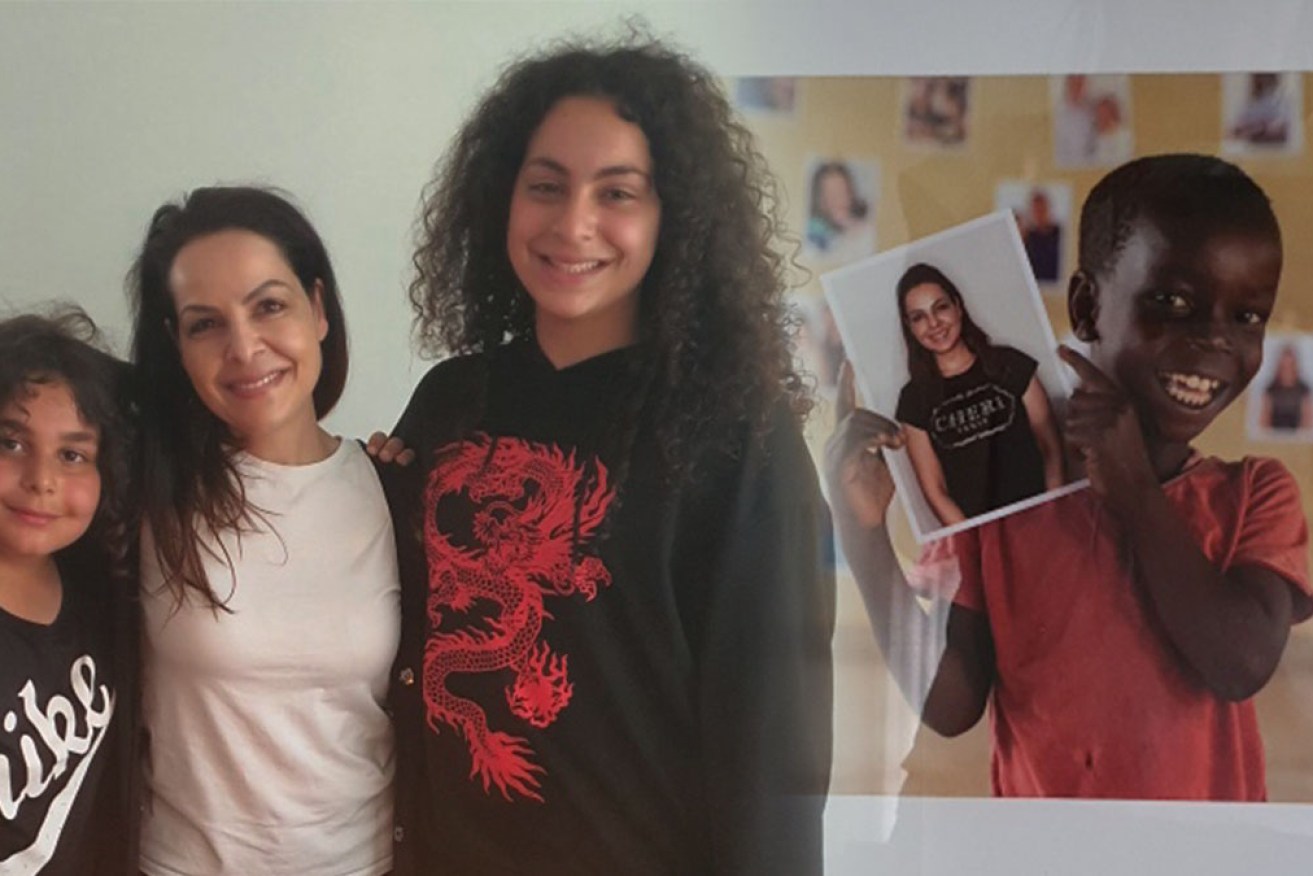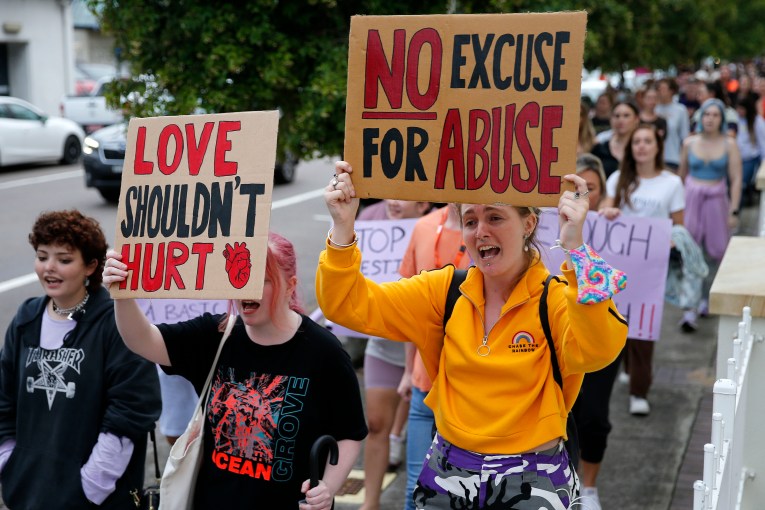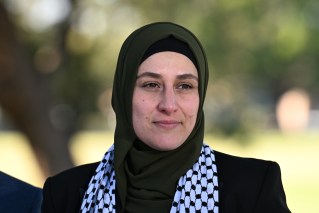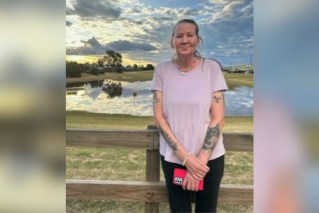Giving in 2020: Charities see spike in donations


Dee Darwiche (centre) started sponsoring eight-year-old Swahim (far right) in February.
Australians have shown more generosity in a year overshadowed by a global pandemic and unprecedented economic setbacks.
New data obtained from multiple charities has revealed people in Australia were giving away money at a time when so many were doing it tough.
Donations to the Asylum Seeker Resource Centre (ASRC) increased by almost 40 per cent from last year.
Fundraising director Alan White called 2020 “a record year for fundraising donations as total income and a record year of growth”.
About 60 per cent of donations – to support the human rights organisation fight for detainees and assist those seeking asylum who had no access to COVID support from the government – came from Victoria.
The number of people it has been able to feed tripled, compared to before the pandemic.
Similarly, the number of people ASRC has housed has increased four-fold in the same period.
Mr White said people seeking asylum are highly vulnerable and often have no place to go for help except for organisations like the ASRC.

Medevac detainees are seen through a window of the Mantra Hotel in Melbourne on December 10. Photo: AAP
Victorians accounted for 35 per cent of new donors in 2020.
The fact that the ASRC operates a number of services in Victoria to more than 7000 people annually helps explain Victorians’ affinity towards their work, Mr White said.
Meanwhile, the money that Mission Australia was able to fundraise between April and September increased 35 per cent from the same six months last year.
“We believe there has been an increase in giving in Australia because there is strong awareness amongst individuals and corporates ‘that we are all in this together’,” said Elvira Lodewick, general manager of marketing and fundraising.
The most significant growth in donations was in New South Wales, where it has a large supporter base.
Even while Victorians were in the grip of a second wave, they kept giving so much so that Mission Australia’s income from fundraising efforts lifted 12 per cent from the same time in 2019.
“Amidst physical distancing measures and lockdowns, it has been heartening to see how this collective experience of COVID-19 has galvanised Australia’s sense of community spirit, kindness and generosity,” Ms Lodewick said.
“It has bolstered our sense of care and compassion for everyone, particularly towards those who are most vulnerable.
“Those who have been in a position to donate this year have really felt moved to help and support those who are doing it extra tough, particularly during the pandemic.”

Across Australia, people have been giving in spades. Photo: Getty
Between March and September, more people across Australia signed up to sponsor a child with World Vision than during the corresponding period 12 months earlier.
Despite Melburnians spending most of that time in lockdown, World Vision saw a 32 per cent increase in people from Australia’s second-largest city signing up online to sponsor children from overseas.
“We wondered at the onset of COVID-19 what the impact would be on Australians; whether it would make people more aware and more empathetic for other people across the world facing a similar situation – but one heightened by poverty and hardship – or whether it would make them more inward-looking, and more focused on domestic problems,” chief marketing officer Maryanne Tsiatsias said.
The number of Adelaidians who signed up to sponsor a child between March and September rose 38 per cent from the same period last year.
World Vision also saw a 20 per cent increase in sponsors from Sydney and 16 per cent from Brisbane.
‘I will be there for him’
Dee Darwiche, a single mum of two from the Melbourne suburb of Bulleen, signed up in February to sponsor a child in Uganda named Swahim.
Things became tough for Ms Darwiche when she lost her job and briefly remained unemployed. Then, in August, two of her distant cousins were killed in the Beirut port explosion.
A photo of Swahim in her living room keeps Ms Darwiche motivated despite her own setbacks, as it serves as a reminder that the eight-year-old is relying on her.

Ms Darwiche has been financially helping Ugandan boy Swahim since February.
“I will be there for him unless I myself have no food,” she said.
Ms Darwiche, 39, lived in Lebanon during the civil war, spent time in a bomb shelter, and survived on non-perishables before migrating with her family to Australia in 1984.

Ms Darwiche (centre) with her 11-year-old son Issa and 14-year-old daughter Mayada.
Seeing Australians panic-buying for things like toilet paper reminded her of her traumatic time in Lebanon.
“Stocking up and buying canned food took me back to that time again where we were back in survival mode,” she said.
No matter how tight money gets, she said she will continue to financially support Swahim.
“We have this belief that whatever you give you’ll get back,” Ms Darwiche said.








